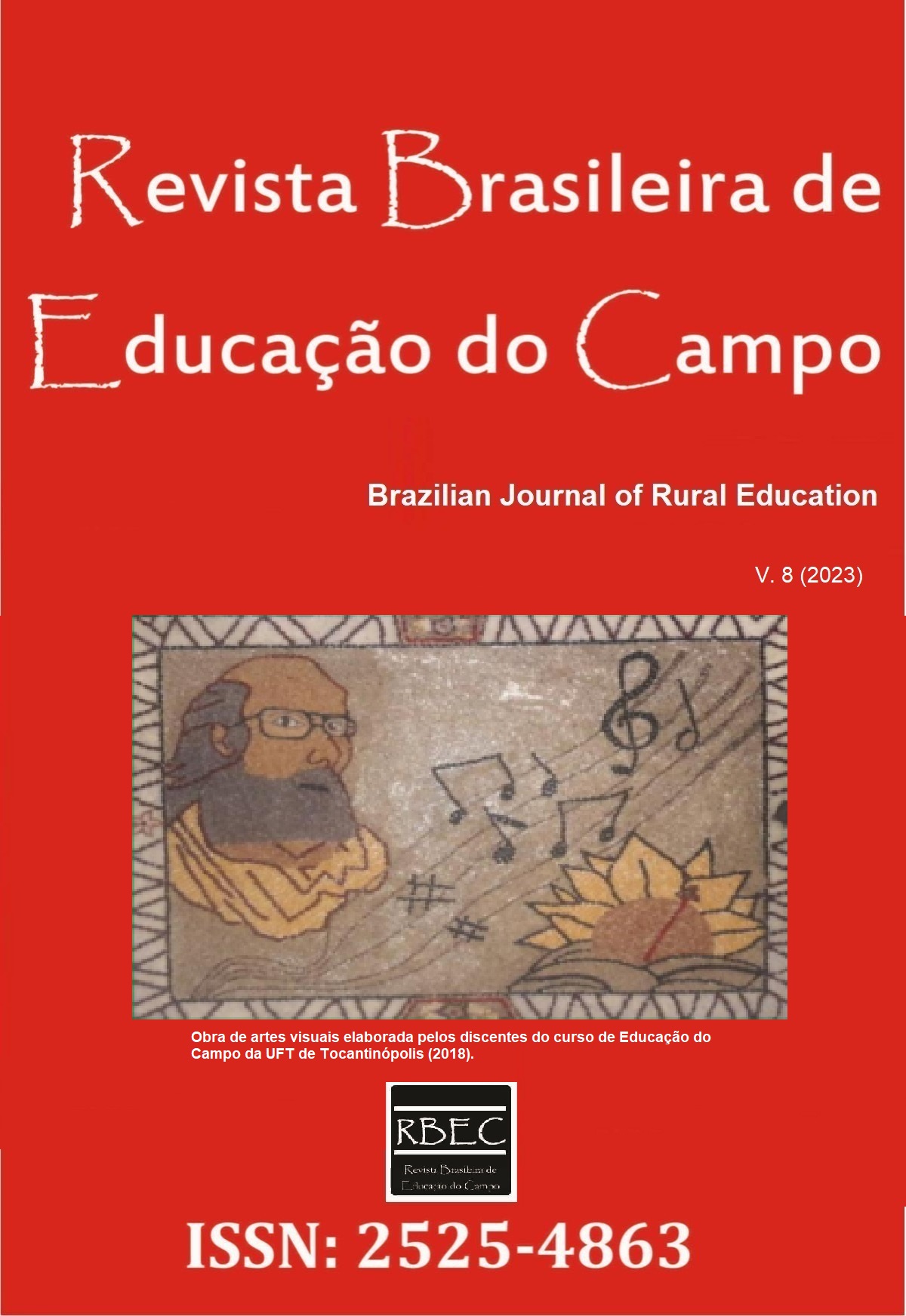What do Children tell us? Listening and observation pointing directions
DOI:
https://doi.org/10.20873/uft.rbec.e15801Abstract
ABSTRACT. This article aims to address the relevance of listening and observation in the work built with children. To this end, we will present a project carried out in a public school, of Early Childhood Education, in the city of Rio Grande-RS. The foundation of this research was qualitative, composed of grounded data theory and project methodology. Among the main results obtained, we highlight that belonging and emotions are fundamental factors for a shared and meaningful educational process. We also found that children are open to communicating their thoughts, desires and desires. In this sense, the sensitive exercise of listening and observation proves to be essential for a pedagogical work that aims to be carried out with respect for the protagonism of children.
Downloads
References
Assis, D., Moreira, L., & Fornasier, R. C. (2021). Teoria Bioecológica de Bronfenbrenner: a influência dos processos proximais no desenvolvimento social das crianças. Research Society and Development, 10(10).
Barbosa, L. P., & Oeiras, J. Y. Y. (2008). Uso de Wikis em Projetos Escolares: experiências colaborativas com alunos de ensino fundamental. In Anais do Workshop de Informática na Escola (Vol. 1, No. 1).
Bhering, E., & Sarkis, A. (2009). Modelo bioecológico do desenvolvimento de Bronfenbrenner: implicações para as pesquisas na área da Educação Infantil. Horizontes, 27(2), 7-20.
Brasil. (2010). Diretrizes Curriculares Nacionais para Educação Infantil, DCNEI.
Brasil. (1996). Lei de Diretrizes e Bases da Educação Nacional, LDB. 9394/1996.
Bronfenbrenner, U. (2011). Bioecologia do desenvolvimento humano: tornando os seres humanos mais humanos. ArtmedEditora.
Bronfenbrenner, U., & Morris, P. A. (1998). The ecology of developmental processes. In Damon, W., & Lerner, R. M. (Orgs.). Handbook of child psychology. Theoretical models of human development. New York: John Wiley.
Charmaz, K. (2009). A construção da teoria fundamentada: guia prático para análise qualitativa. Porto Alegre: Artmed.
Corsaro, W. A. (2002). A reprodução interpretativa no brincar ao faz-de-conta das crianças. Educação, Sociedade e Cultura, 17, 113-134.
Copetti, F., & Krebs. R. (2004). As propriedades da pessoa na perspectiva do paradigma Bioecológico. In Koller, S. (Org.). Ecologia do desenvolvimento Humano. São Paulo: casa do psicólogo.
Fochi, P. (2019). Mini-histórias: rapsódias da vida cotidiana nas escolas do observatório da cultura infantil-OBECI. Porto Alegre: Paulo Fochi Estudos Pedagógicos.
Freinet, C. (2001). Comment susciter le désir d’apprendre?. éd.
Haddad, L. (1997). Ecologia do atendimento infantil: construindo um modelo de sistema unificado de cuidado e educação (Tese de Doutorado). Universidade de São Paulo, São Paulo.
Le Breton, D. (2016). Antropologia dos sentidos. Petrópolis, RJ: Vozes.
Le Breton, D. (2017). Sociologia do Corpo. Petrópolis,RJ: Vozes.
Le Breton, D. (2019). Antropologia das emoções. Petrópolis, RJ: Vozes.
Luck, H. (2016). Metodologia de projetos: uma ferramenta de planejamento e gestão. Petrópolis, RJ: Vozes, 2003.
Merleau-Ponty, M. (1999). Fenomenologia da percepção. São Paulo: Martins Fontes.
Piske, E., & Garcia, N. (2022). Contribuições da Abordagem Bioecológica para a educação das infâncias: Estudos do Grupo Ecoinfâncias In Garcia, N. (2022). Educação das infâncias em diferentes contextos ecológicos: estudos e experiências do Grupo Ecoinfância (s./p.). Rio Grande, RS: Ed. FURG.
Monteiro, A. M. G., Oliveira, A. D. S., & Rondon, G. D. S. (2013). Metodologia de projetos na educação infantil: valores, saberes e desafios. Revista Educação e Linguagem, Cuiabá, 7(1), 40-53.
Rocha, E. (2008). Por que ouvir as crianças? Algumas questões para um debate cientifico multidisciplinar. In Cruz, S. H. (Org.). A criança fala: a escuta de crianças em pesquisas (s./p.). São Paulo: Cortez.
Queroz, J., & Stutz, L. (2016). A importância da observação de aulas na Educação Infantil. Calidoscópio, 14(1).
Published
How to Cite
Issue
Section
License
Copyright (c) 2023 Hardalla do Valle, Angela Bersch, Eliane Piske

This work is licensed under a Creative Commons Attribution 4.0 International License.
Proposal for Copyright Notice Creative Commons
1. Policy Proposal to Open Access Journals
Authors who publish with this journal agree to the following terms:
A. Authors retain copyright and grant the journal right of first publication with the work simultaneously licensed under the Creative Commons Attribution License that allows sharing the work with recognition of its initial publication in this journal.
B. Authors are able to take on additional contracts separately, non-exclusive distribution of the version of the paper published in this journal (ex .: publish in institutional repository or as a book), with an acknowledgment of its initial publication in this journal.
C. Authors are permitted and encouraged to post their work online (eg .: in institutional repositories or on their website) at any point before or during the editorial process, as it can lead to productive exchanges, as well as increase the impact and the citation of published work (See the Effect of Open Access).















